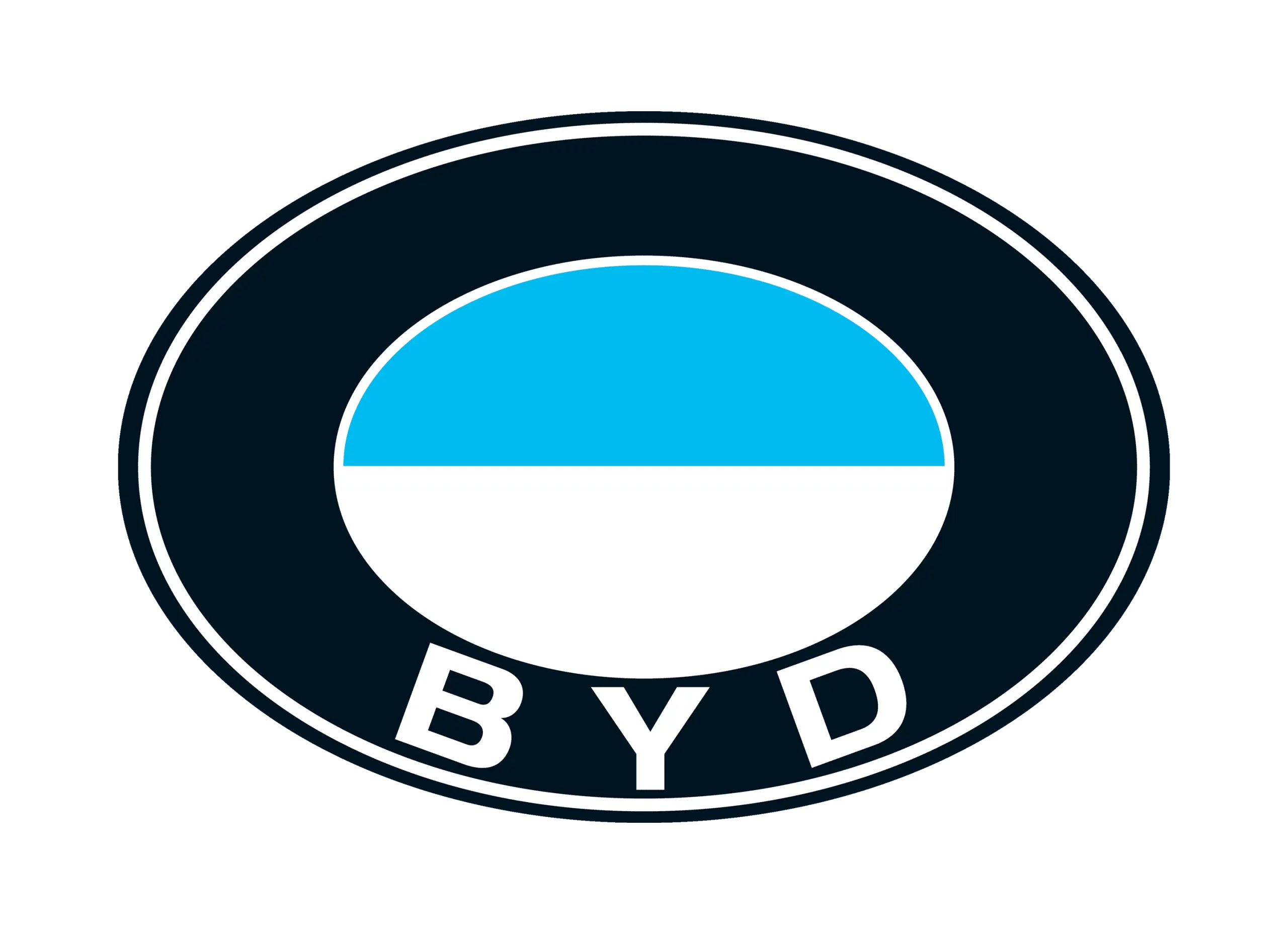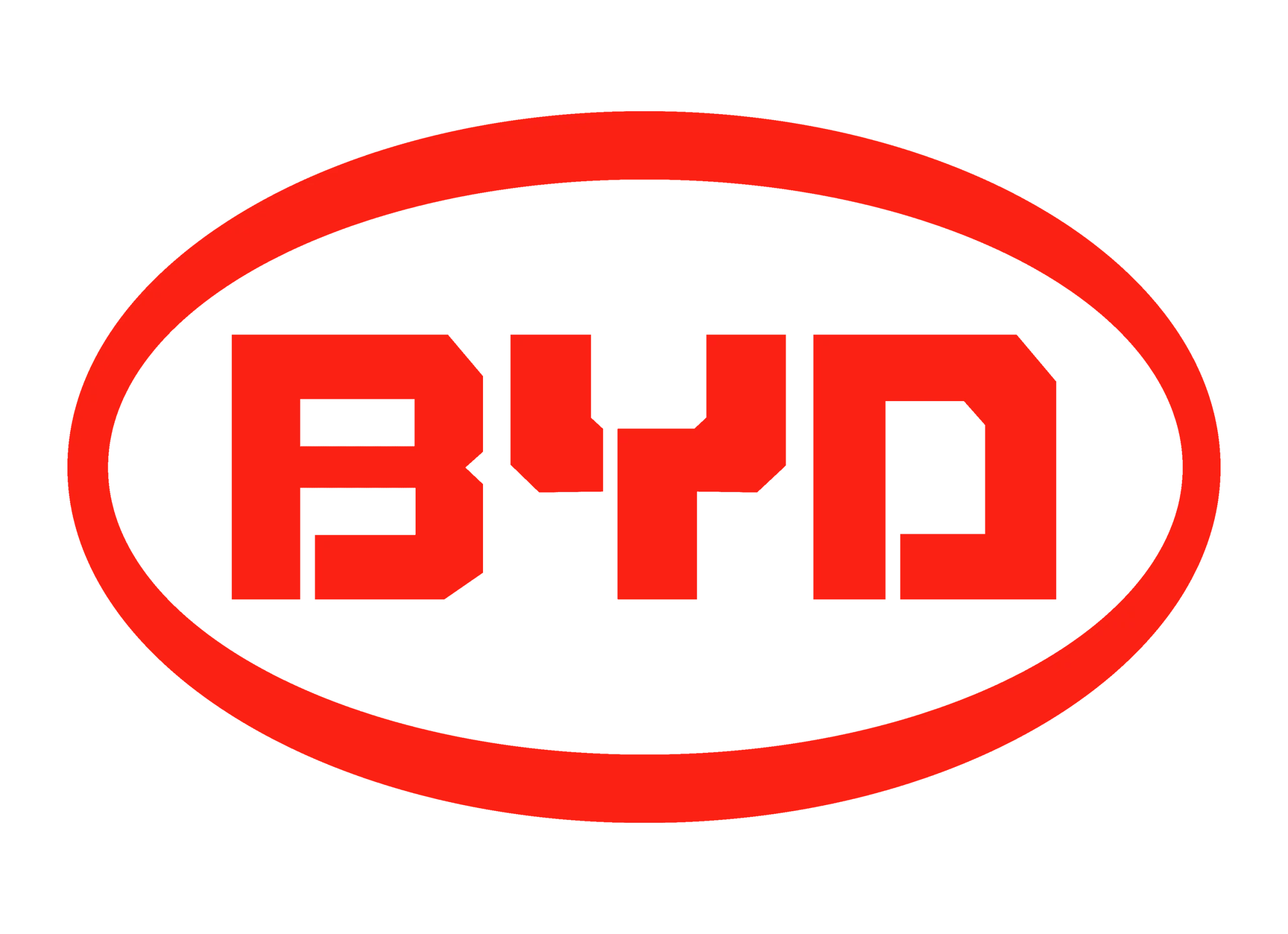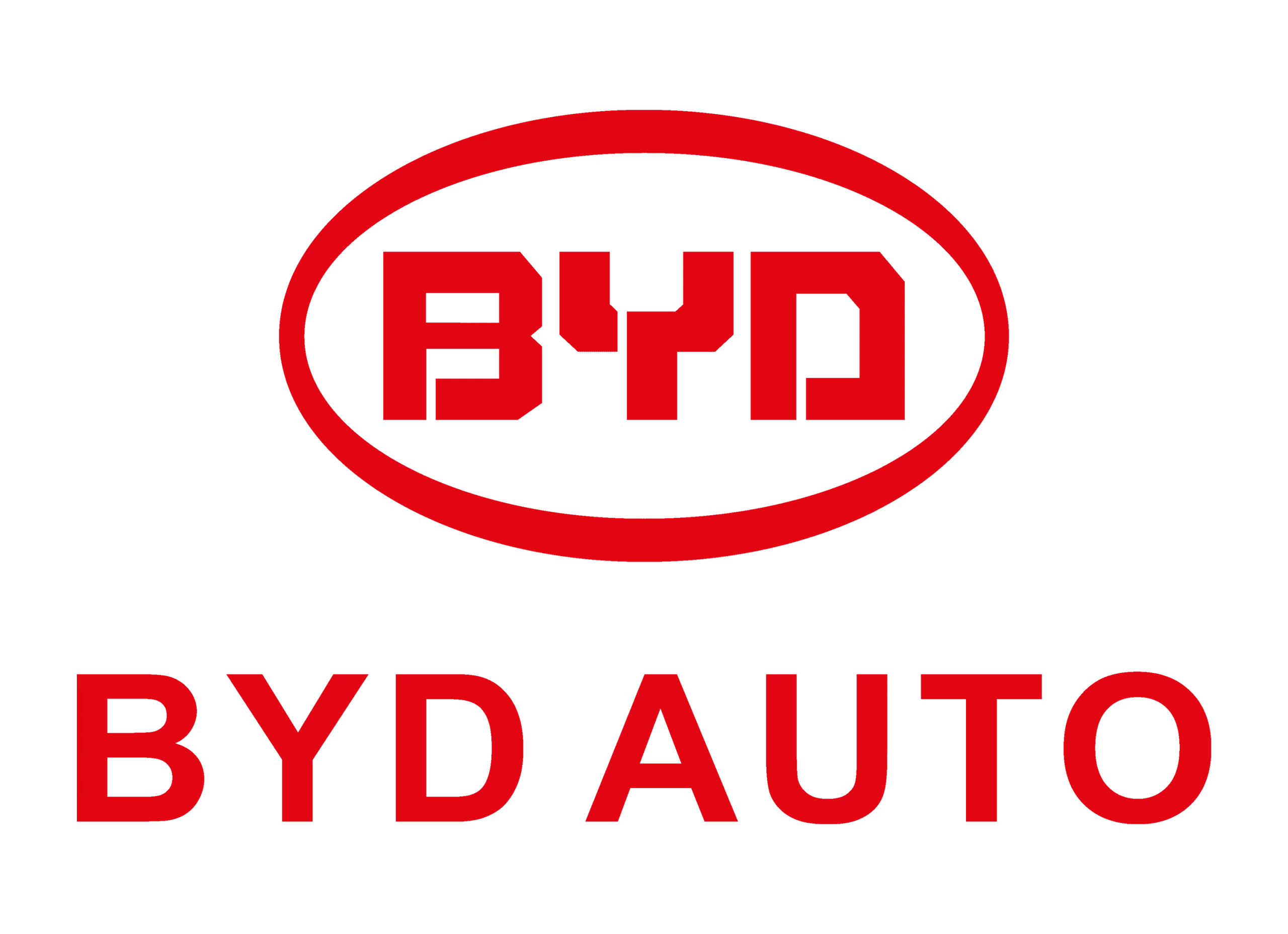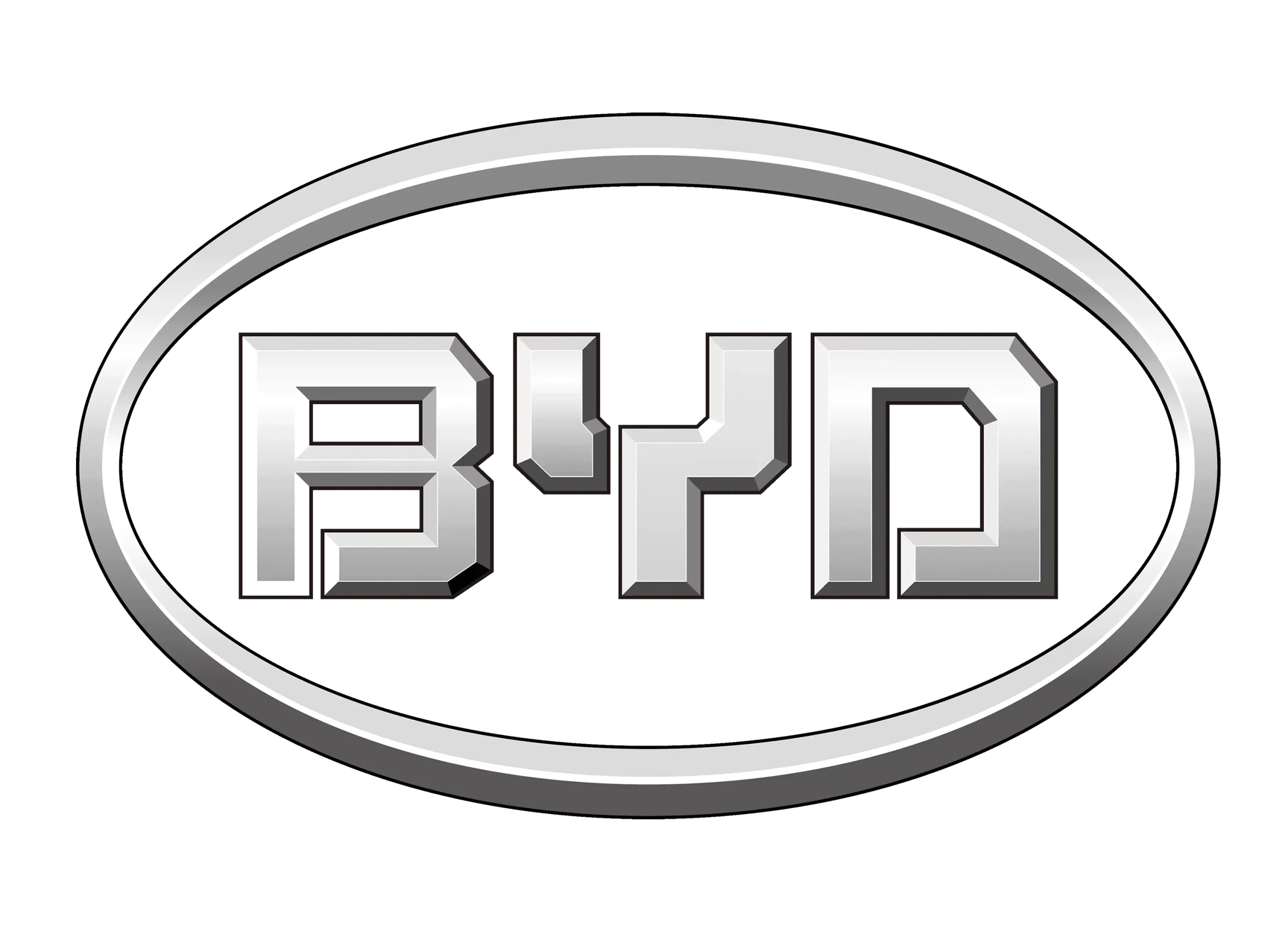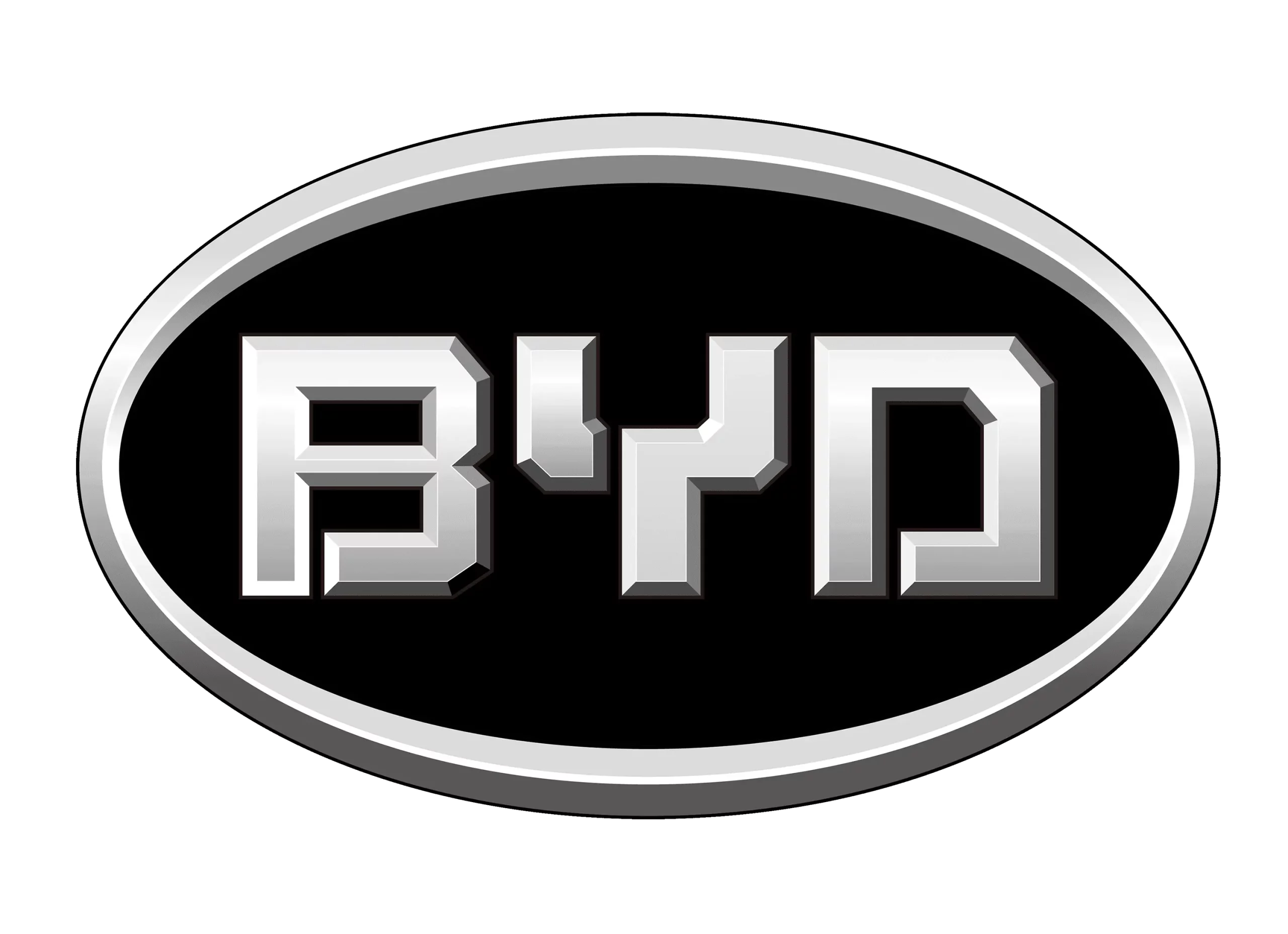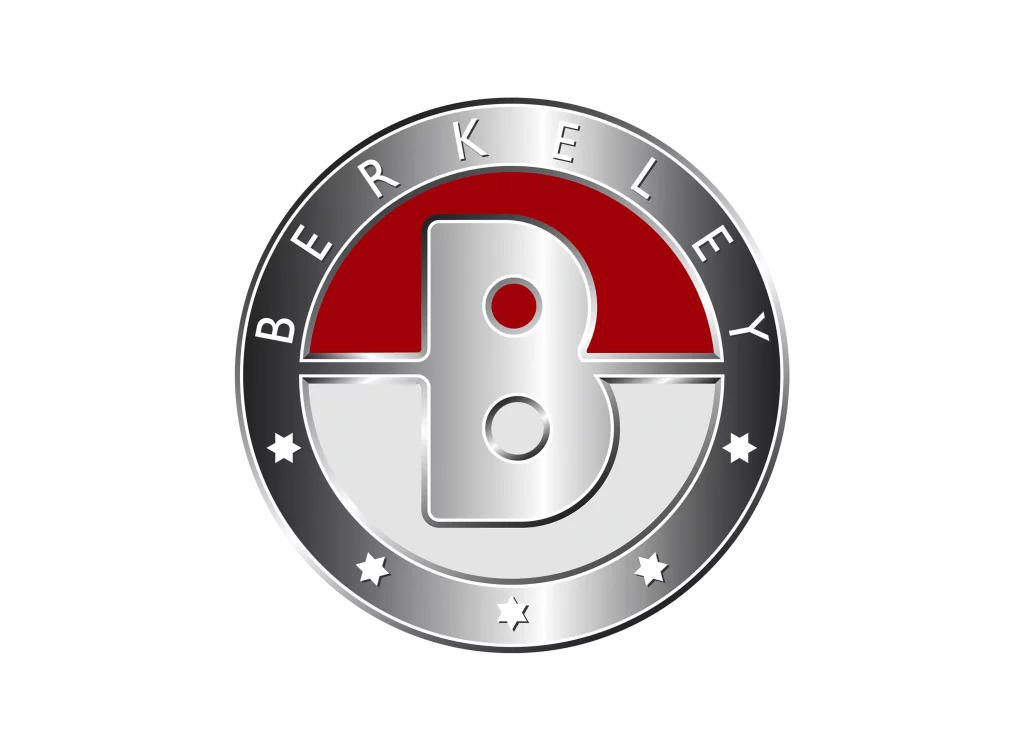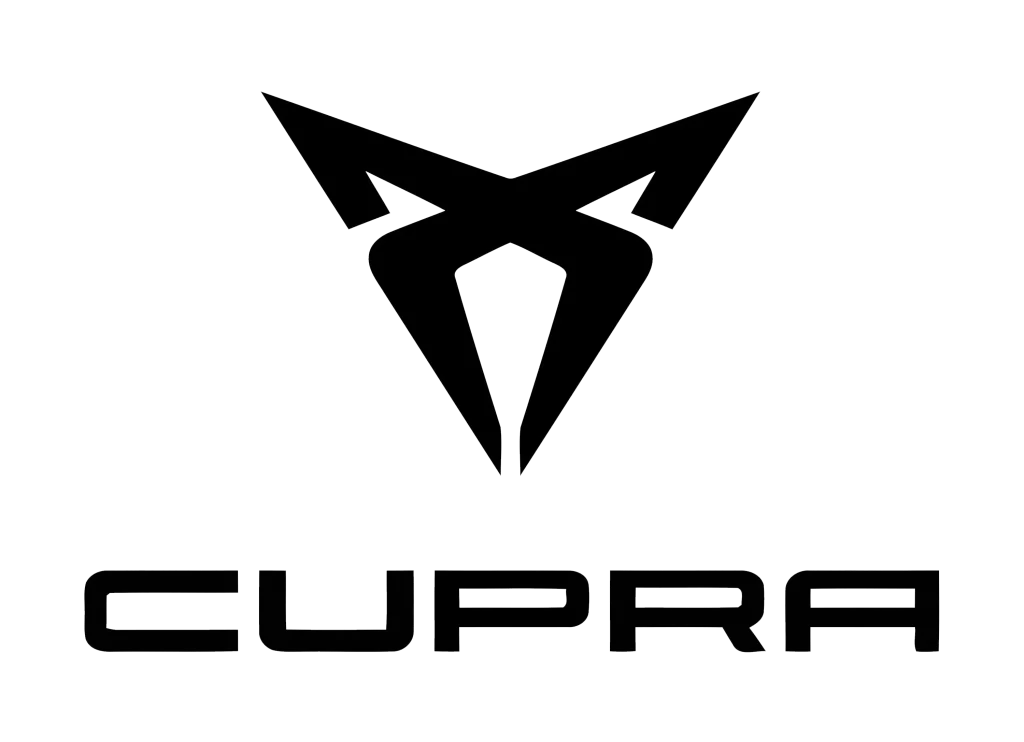BYD logo
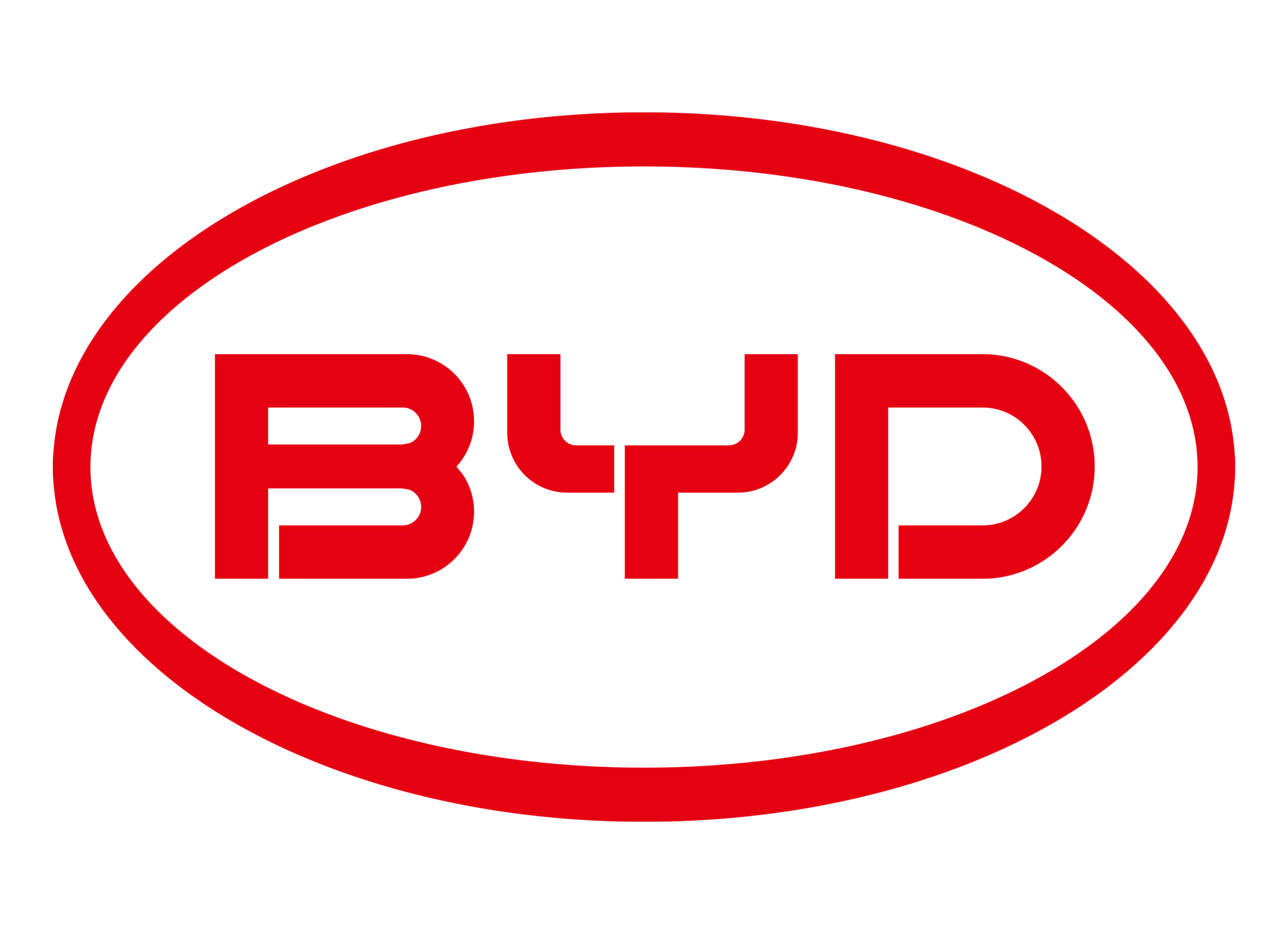
It is interesting to note that the abbreviation “BYD” in the logo stands for “Build Your Dreams”. This phrase conveys a message of optimism, encouragement, and aspiration, which are all qualities that BYD may wish to associate with its brand.
The evolution of the BYD logo from a more standard design to a more original one also suggests a focus on innovation and uniqueness. As a car manufacturer that produces electric cars and other sustainable transportation solutions, BYD may wish to differentiate itself from other brands and highlight its innovative approach to engineering and design.
In summary, the BYD logo conveys a message of optimism, professionalism, responsibility, innovation, and uniqueness, all of which are qualities that may appeal to its target audience of eco-conscious and tech-savvy consumers.
BYD Brand Overview
2003
BYD Company
Shenzhen, Guangdong, China
BYD Auto Co., Ltd. is a Chinese car manufacturer that produces a wide range of vehicles, including electric cars, hybrid cars, gasoline-powered cars, trucks, buses, forklifts, and electric bicycles. The company was formed in 2003 after BYD Company acquired Qinchuan Machinery Works from Norinco. BYD has gained experience in the automobile industry and has maintained strict control over technical processes, resulting in several awards and recognitions, including the Top Crash Facility Award in 2013. In 2008, Warren Buffet bought out the company through Sino-American Energy Holdings, and since then, BYD has expanded its products and services globally, including in Europe and South America, with lucrative contracts for electric buses. BYD’s brand name stands for Build Your Dreams, and it continues to gain recognition worldwide.
BYD History
BYD Auto Co., Ltd. is a Chinese car manufacturer that has been making waves in the automotive industry for its innovative and sustainable approach to mobility. Founded in 2003 after BYD Company acquired Qinchuan Machinery Works from Norinco, the company started with producing gasoline-powered cars and trucks but quickly transitioned to electric and hybrid cars.
BYD’s History
Before diving into BYD’s history, it is essential to know that the company’s name stands for “Build Your Dreams,” which reflects its ambition to become a leading electric vehicle (EV) manufacturer. BYD’s journey in the automotive industry began in 1987 when Qinchuan Machinery Works started producing automobiles in Xi’an, Shaanxi Province. In 1995, BYD started producing rechargeable batteries, which became the company’s core business.
In 2002, BYD decided to enter the automotive industry and acquired Qinchuan Machinery Works in the following year, gaining the rights to produce cars and other vehicles independently. BYD’s first car, the QJC7050, had a 30.5 cubic inch engine, and the company was also developing a sedan, the QCJ7181 Flyer, at the time of acquisition.
BYD introduced the Flyer in 2005 as its own model, and it quickly gained popularity in the Chinese market for its affordability and fuel efficiency. By 2008, BYD had become one of the fastest-growing Chinese car manufacturers, and its reputation grew after business tycoon Warren Buffet invested in the company through Sino-American Energy Holdings.
BYD’s Innovations
One of BYD’s significant contributions to the automotive industry is its focus on electric and hybrid cars. In 2008, the company launched the F3DM, China’s first plug-in hybrid sedan. It was followed by the e6, an all-electric crossover SUV, in 2009. The e6 gained global attention after being used as a taxi in Shenzhen, China, and later as a police car in London, England.
BYD’s innovation and sustainability have earned the company several awards, including the Top Crash Facility Award in 2013. The award recognizes BYD’s commitment to safety, which is evident in its vehicles’ design and construction.
In recent years, BYD has continued to innovate and expand its product line. In 2019, the company unveiled the Han electric sedan, which boasts a range of 605 km (376 miles) on a single charge. The Han also features BYD’s Blade Battery technology, which uses a new type of lithium-ion battery that is safer, more durable, and more efficient than conventional batteries.
BYD’s Expansion
BYD’s ambition to become a leading EV manufacturer has led the company to expand its operations globally. In 2020, the company started selling electric trucks in the United States, and it announced plans to open a factory in Canada in 2022. The same year, BYD won a contract to supply 406 electric buses to Colombia, with a delivery date set for mid-2022.
BYD has also established partnerships with other companies to expand its product line and reach. In 2010, it partnered with Daimler AG to form the Denza brand, which produces luxury electric cars in China. In 2019, BYD and Toyota announced a partnership to develop battery-electric cars and related components.
BYD Auto Co., Ltd. has come a long way since its inception in 2003. From producing gasoline-powered cars to becoming a leader in the EV industry, BYD’s history is a testament to its commitment to innovation and sustainability. The company’s focus on electric and hybrid cars, as well as its use of Blade Battery technology.
In 2019, BYD introduced its first electric SUV, the Tang EV, which features an all-wheel-drive system and a range of up to 373 miles on a single charge. The Tang EV also has advanced safety features, such as lane departure warning and automatic emergency braking.
In addition to electric and hybrid vehicles, BYD also produces gasoline-powered cars, trucks, and buses. One notable product is the BYD K9 electric bus, which has been widely adopted by transit agencies around the world, including in the United States, Canada, and Europe. The K9 electric bus is equipped with BYD’s proprietary Iron-Phosphate battery technology, which provides a long range and fast charging times.
BYD is also involved in the production of electric forklifts, which are used in warehouses and manufacturing facilities. These forklifts are designed to be energy-efficient and environmentally friendly, and they can be equipped with advanced safety features such as collision avoidance systems.
Another interesting area of BYD’s business is electric bicycles. BYD produces a range of electric bicycles, which are popular in China and other countries. These bikes are equipped with powerful motors and high-capacity batteries, making them an efficient and sustainable mode of transportation.
One of BYD’s most notable partnerships is with Daimler AG, the parent company of Mercedes-Benz. Together, BYD and Daimler have formed the Denza brand, which produces luxury electric vehicles for the Chinese market. The Denza brand combines BYD’s expertise in electric vehicle technology with Daimler’s design and engineering capabilities.
Overall, BYD is a major player in the global automotive industry, with a wide range of products that cater to different markets and segments. Its focus on electric and hybrid vehicles, as well as its innovative battery technology, has put it at the forefront of the transition to sustainable transportation. With expanding operations in Europe and other regions, BYD is poised for continued growth and success in the years to come.

